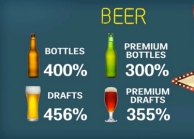What’s the Holdup, DOJ?

Photo courtesy ofAmber Sowards
Meet Mel and Amber. They live in Madison, Wisconsin, with their dog and two cats. Their first baby is due this month.
Following a federal district court ruling striking down the state’s discriminatory marriage ban on June 6, they married in Dane County on the courthouse steps. Reflecting on their decision to tie the knot, Amber said, “I didn’t think it would change anything except on paper, but we felt closer. It all felt more real.”
Just nine days after hearing arguments seeking marriage for same-sex couples in Indiana and Wisconsin, the U.S. Court of Appeals for the 7th Circuit issued a blistering, unanimous decision upholding earlier district court rulings striking down both states’ marriage bans. Following those earlier district court rulings this year, hundreds of couples like Mel and Amber were legally married in both states prior to the decisions being stayed.
But as of today, these couples’ marriages have yet to be recognized by the federal government.
No doubt reflecting feelings of many other couples in their situation, Mel said, “We had hoped getting married would give us more security, but instead we’re more in limbo than ever before.”
The Department of Justice rightly announced earlier this year that similarly situated same-sex couples in Michigan and Utah would have their marriages recognized as lawful, and they would be considered eligible for all relevant federal benefits. Speaking of such couples in Utah, Attorney General Eric Holder said, “These families should not be asked to endure uncertainty regarding their status as the litigation unfolds.”
Several months later, speaking of couples who married in Michigan before the district court’s ruling was stayed, Holder again stated, “[T]hese Michigan couples will not be asked to wait for further resolution in the courts before they may seek federal benefits to which they are entitled.”
Why is this no less true for the hundreds of same-sex couples who legally married in Indiana and Wisconsin?
In Michigan, the governor did make it clear that, while the state would not extend recognition to these couples while the legal challenge of the state’s marriage ban proceeded, the marriages that took place were lawful and cannot be taken away. Similar assurances have not come from officials in either Indiana or Wisconsin, but that is not what federal recognition should hinge on.
Marriages that same-sex couples in both states validly entered into have vested these couples with rights that the state and federal government must recognize. Attempting to retroactively strip these couples of their rights by refusing to recognize their marriages puts the government in conflict with the couples’ due process rights under the Constitution.
Following the district court decision in Wisconsin in June, members of that state’s congressional delegation sent Attorney General Holder a letter asking that same-sex couples who legally married have their marriages recognized for all federal purposes. The ACLU of Indiana sent a similar letter to Holder in July. DOJ still has not said one way or the other how it intends to treat these couples.
Thursday’s decision from the 7th Circuit was certainly reason for celebration, but it is not the end of the road for the legal challenges to Indiana’s and Wisconsin’s marriage bans. While that moves forward, potentially ending at the Supreme Court, the federal government should act now to ensure that families like those of Mel, Amber, and their new baby aren’t left in limbo in the meantime and therefore denied the security the federal government accords the marriages of same-sex couples in Utah and Michigan.












